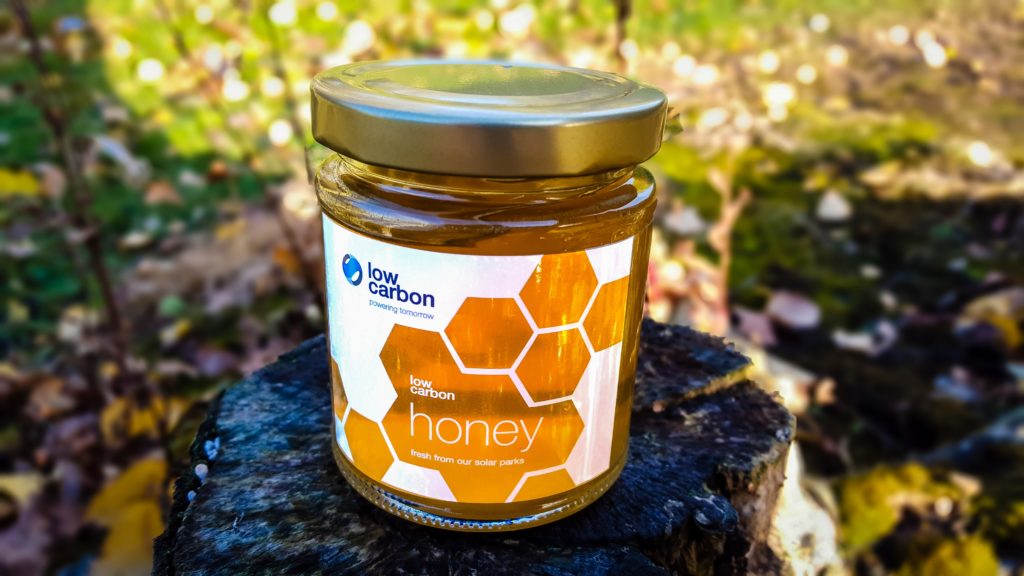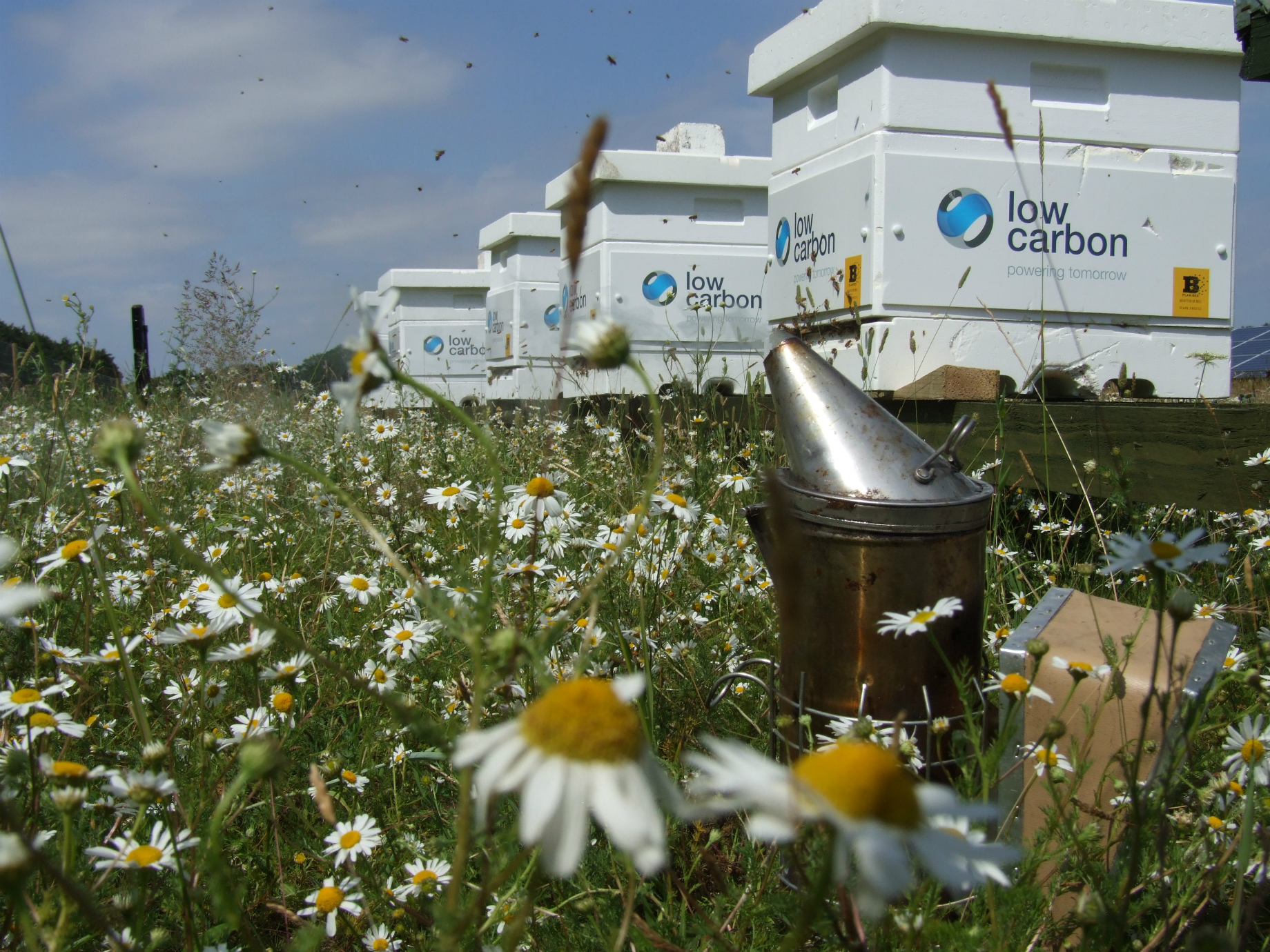The plight of the honeybee is unsurprisingly a fast-growing concern for scientists, posing threats to our ecosystem, food security and life on this earth as we know it. So what is the future of the honeybee?
If honeybees were no longer a part of our world, it’s not just their honey we’d miss; other foods that we know and love, like almonds, could cease to exist. Without honeybee pollination, we’d lose an astounding 70 out of 100 crop species that feed 90% of the planet’s population (source).
The University of Reading has identified that the honeybee population in the UK has sadly halved in the last 20 years – with mites, pesticides and prominently climate change being large influencers. But what can be done?
Low Carbon’s Mission
Low Carbon and Plan Bee have partnered together with the intention to boost local bee populations and support greater biodiversity. Within Low Carbon’s solar farms in Suffolk, Dorset and Cornwall, stand 25 beehives, that, in total, successfully house an impressive 2 million bees. These wildflower flanked solar farms are quite literally buzzing with biodiversity!
A percentage of the high-quality honey produced by each hive of bees is harvested, making sure to leave enough for them to survive off in the winter months. This honey is used to help raise awareness of the plight of bees and gain continued support for renewable energy.
Low Carbon is proud to be at the forefront of conserving Britain’s bees. They see the encouragement of biodiversity as a core responsibility and the protection of bees as a momentous part in taking action against climate change.
“We are committed to protecting local habitats and ecosystems on our solar farms. Encouraging biodiversity should not be a bolt on for renewable energy companies, but rather a core responsibility. Protecting bees, insects and other species is a crucial part in the fight against climate change and we look forward to continuing our work with Plan Bee in the future.” says Quentin Scott, Low Carbon’s Marketing Director. (Source)
Continuing on from the success of the hives, Low Carbon is trialling a beehive monitoring system to track and monitor beehive parameters such as weather conditions, hive weight, brood temperature and humidity. This innovative measure gives increased opportunity to help the bee population thrive and repopulate.

Robot Bees
In 2018, the Netherlands’ Delft University of Technology, developed remote-controlled ‘drone bees’ designed to pollinate 80% of the country’s food crops. These futuristic creations have a flying time of six minutes and a wingspan of 33cm. David Goulson, the founder of Bumblebee Conservation Trust and Professor of Biology at the University of Sussex, however, stated that if bee extinction did occur, it would cost approximately £32 billion to replace every honeybee on our planet.
Low Carbon chooses to incorporate technology and ecology with caring for the bees that we currently have, as part of its wider goal of alleviating the negative effects of climate change.
What can you do to help?
Low Carbon and Plan Bee’s partnership is a positive example of how like-minded businesses can work together to protect our planet against the possible disastrous effects that the extinction of bees could have.
Individuals are also working to conserve the honeybee population by taking measurable steps like installing beehives. Here are some other effective ways you can help save the honeybee:
- Plant a variety of bee-friendly fruit and veg
- Grow plants and veg from seed
- Let your grass grow – it’ll act as shelter
- Use compost that’s peat-free
- Allow other insects into your garden
- Stay away from pesticides
- Plants flowers such as anemone, alliums, skimmia, viburnum, peonies and roses.
When deciding to help towards the conservation of these beautiful insects, it’s helpful to know about honeybee behaviour. The main concern is a lack of suitable habitats for foraging due to the loss of woodland, hedgerows and meadows bountiful of suitable plant species.
Low Carbon sees the growth of biodiversity as a core focus and the conservation of bees as a crucial part in the fight against climate change.
